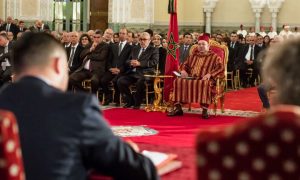 King Mohammed VI has launched a new investment plan boosting the role of the private sector and setting up the necessary conditions to spur sustainable economic growth in the North African Kingdom.
King Mohammed VI has launched a new investment plan boosting the role of the private sector and setting up the necessary conditions to spur sustainable economic growth in the North African Kingdom.
The new plan, which freshens up Morocco’s national investment strategy, adopts new support measures and incentives to investment, reforms investment promotion bodies, sets up a new General Directorate for Industry and another one for Commerce and digital strategy.
It offers new fiscal incentives to investors including tax exemptions for new corporations during their first 5 years, new Free Trade Zones (FTZ) and more facilities for export-oriented industries. A new agency gathering public and private bodies dealing with investment & exportation promotion and another new agency for digital economy and e-government will be set up under the plan.
This ambitious plan seeks to create 500,000 new jobs over the coming seven years, increase the contribution of industrial GDP by 9 points and improve the trade balance by capitalizing on the progress made and the positive results achieved during the past two years during which investment projects helped to create over 160,000 jobs.
This momentum will be reinforced through the setting up of 30 plants, expected to create 39,000 additional jobs for a total investment of 7.5 billion Dirhams (1 MAD equals 9.7 USD)
Thanks to its political stability, geostrategic position and proximity to Europe, Africa and MENA region, Morocco offers to investors a competitive export platform, including workers low-wages, low tax rates, strong macroeconomic stability, sustainable growth, resilience to regional and international crisis, controlled inflation and a growth supported domestic demand and public investment.
Morocco, which signed FTAs with USA, the EU, Arab countries…, also offers investors free duty access to a market of 55 countries representing more than 1 billion consumers and 60% of world GDP.
To promote and attract more investment, Moroccan authorities improve constantly the business climate and spare no efforts to increase competitiveness and transparency thanks to the simplification of administrative procedures, modernization of financial markets, protection of intellectual property and fight against corruption.
